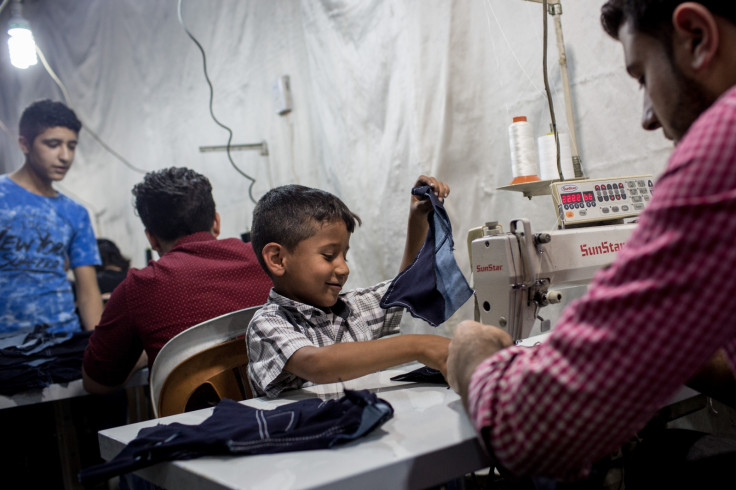Refugees making Marks & Spencer, Zara and Asos clothes in Turkey claims BBC Panorama report
A BBC documentary claims that Syrians are exploited to make clothes for UK shoppers.

Syrian refugee children are allegedly being put to work in Turkish factories to make clothes for UK retailers Marks and Spencer and Asos. Zara and Mango were also named for allegedly using adult refugee labourers illegally. All the brands have firmly denied the allegations.
BBC investigative documentary show Panorama – Undercover: The Refugees Who Make Our Clothes, will make the allegations when it is broadcast on Monday (24 October) at 8.30pm BST. The show claims the youngest worker they discovered in a Turkish factory was 15-years-old.
M&S said when it conducted its own investigation it found no refugees working anywhere in its Turkey supply chain. However, the BBC report has claimed that it found seven Syrians working in one of the main factories of the British retailer.
The report claims refugees are often underpaid – a little more than £1 ($1.22) an hour – and they were thought to be employed through a middle man, who pays the workers in cash on the street.
One of the refugees alleged they were treated badly at the factory and said: "If anything happens to a Syrian, they will throw him away like a piece of cloth."
One of youngest workers was a 15-year-old boy, who told BBC that he was working over 12 hours a day to iron clothes before they are shipped to the UK.
M&S said it found BBC's findings as "extremely serious" and "unacceptable" to it. But it has offered permanent legal employment to any Syrians who were found working in the factory.
"Ethical trading is fundamental to M&S. All of our suppliers are contractually required to comply with our Global Sourcing Principles, which cover what we expect and require of them and their treatment of workers. We do not tolerate such breaches of these principles and we will do all we can to ensure that this does not happen again," a spokesperson for the M&S said.
Turkey has been chosen by many clothing retailers as it is close to Europe and easy to get their shipment on time, the documentary claims. But it raised concern over conducting the business in the country, which receives millions of refugees, fearing exploitation of workers.
Most of the refugees reportedly working without valid permits and mainly found working in the garment industry. Some Syrian refugees were spraying hazardous chemicals on the distressing jeans for Mango and Zara to bleach them but were not given even a basic face mask, the documentary alleges.
However, Mango said it was unaware about the situation and that its own inspection found no Syrians to be working in the factory.
Zara's parent company, Inditex, said its factory inspections are a "highly effective way of monitoring and improving conditions". But the BBC claimed the company's audit conducted in June had given the factory time until December to make the required improvement for significant non-compliance.
BBC said Asos accepted its clothes were made in a factory that had several Syrian refugees working. But Asos claimed it had not approved the factory. When the retailer subsequently did the inspection on its own, it found 11 Syrian adults and three Syrian children working there, BBC claims.
The critics are reported to have put the onus on the retailers for the issues highlighted through the documentary.
Danielle McMullan, from the Business and Human Rights Resource Centre said: "It's not enough to say we didn't know about this, it's not our fault. They have a responsibility to monitor and to understand where their clothes are being made and what conditions they are being made in."
Note: This article has been updated to clarify the allegations made by BBC.
© Copyright IBTimes 2025. All rights reserved.





















